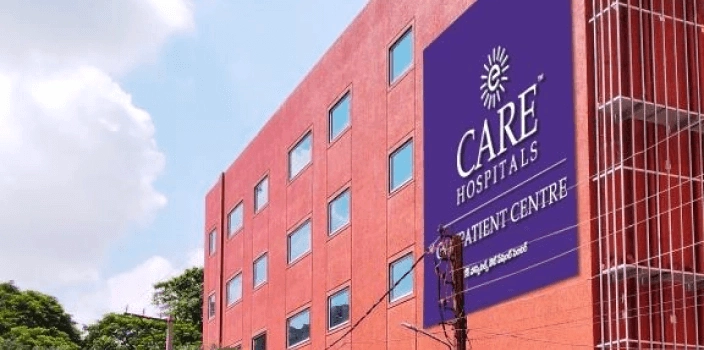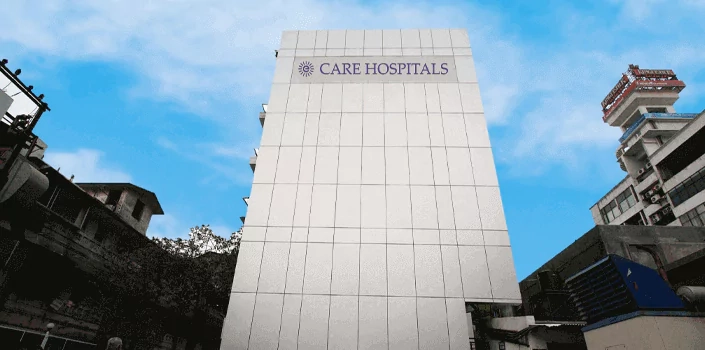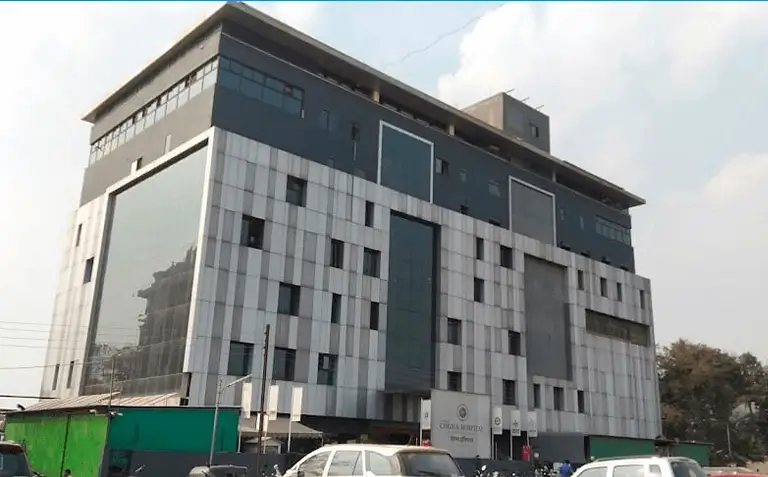-
Doctors
-
Specialities & Treatments
Centre of Excellence
Specialties
Treatments and Procedures
Hospitals & Directions HyderabadCARE Hospitals, Banjara Hills CARE Outpatient Centre, Banjara Hills CARE Hospitals, HITEC City CARE Hospitals, Nampally Gurunanak CARE Hospitals, Musheerabad CARE Hospitals Outpatient Centre, HITEC City CARE Hospitals, Malakpet
HyderabadCARE Hospitals, Banjara Hills CARE Outpatient Centre, Banjara Hills CARE Hospitals, HITEC City CARE Hospitals, Nampally Gurunanak CARE Hospitals, Musheerabad CARE Hospitals Outpatient Centre, HITEC City CARE Hospitals, Malakpet Raipur
Raipur
 Bhubaneswar
Bhubaneswar Visakhapatnam
Visakhapatnam
 Nagpur
Nagpur
 Indore
Indore
 Chh. Sambhajinagar
Chh. SambhajinagarClinics & Medical Centers
Book an AppointmentContact Us
Online Lab Reports
Book an Appointment
Consult Super-Specialist Doctors at CARE Hospitals

Best Hospitals for Corneal Transplant Surgery in Hyderabad
- Advanced Technology
- Shorter Hospital Stay
- Pre & Post-Operative Care
- All Insurance Accepted

Chat With Our Experts
Get second opinion on Whatsapp
25 lakhs+
Happy Patients
Experienced and
skilled surgeons
17
Health Care Facilities
Top most Referral Centre
for Complex Surgeries
Advanced Corneal Transplant Surgery
Corneal transplant surgery gives hope to millions of people around the world. A healthy cornea measures roughly 2.5 centimetres across and forms a clear, dome-shaped surface that is essential for vision. Patients typically recover within weeks to months, depending on their specific procedure type. The remarkable success rate continues to bring new hope to people battling various corneal conditions.
Why CARE Hospitals is Your Top Choice for Corneal Transplant Surgery in Hyderabad
CARE Hospitals ranks among the top medical institutions in Hyderabad and offers exceptional corneal transplant services. The hospital's ophthalmology department features world-class eye physicians and surgeons who treat various eye conditions.
CARE Hospital's eye care services include:
- Precise Diagnostics: Advanced technology for accurate diagnosis and treatment planning
- Surgical Excellence: Skilled surgeons performing various corneal procedures
- Detailed Care: Complete pre-operative and post-operative support
- Quality Assurance: Regular monitoring and follow-up care
Best Corneal Transplant Surgery Doctors in India


Cutting-edge Surgical Innovations at CARE Hospital
Through advanced techniques and technology, CARE Hospital's surgical innovations have greatly improved corneal transplant outcomes. The hospital's recent technological breakthroughs include biosynthetic solutions and artificial corneas.
CARE Hospital's research team works on groundbreaking studies that show promise in stopping cell death and helping endothelial cells spread. This advancement helps, especially when patients cannot undergo traditional transplant procedures.
The hospital's surgical team excels at both routine and complex cases and ensures the best outcomes through personalised treatment approaches.
Conditions for Corneal Transplant Surgery
Doctors might recommend corneal transplants for these conditions:
- Young patients often need corneal transplants because of keratoconus. This eye condition weakens the cornea and makes it thinner over time, which changes its shape.
- Fuchs' endothelial dystrophy is an inherited condition that damages the inner corneal cells and causes fluid buildup that clouds vision.
- Bullous keratopathy remains a common reason people need corneal transplants, especially after cataract surgery.
- Severe corneal injuries that don't heal well
- Stubborn corneal infections that antibiotics can't fix
- Deep stromal scars from chemical injuries
- Corneal ulcers that don't respond to medicine
- Thin or torn corneal tissue
- Problems from previous eye surgeries
Types of Corneal Transplant Surgery Procedures
Today, surgeons can choose from several corneal transplantation approaches. Each method targets specific corneal conditions based on which layers need replacement.
- Penetrating Keratoplasty (PK): This traditional full-thickness transplant removes the entire cornea and replaces it with donor tissue.
- Deep Anterior Lamellar Keratoplasty (DALK): DALK replaces damaged outer and middle corneal layers while keeping the healthy endothelium intact.
- Endothelial Keratoplasty (EK) EK procedures focus on the innermost corneal layers. Two main types exist:
- Descemet Stripping Endothelial Keratoplasty (DSEK/DSAEK): This surgery replaces up to one-third of the cornea. The procedure becomes DSAEK with an automated microkeratome, which creates smoother interfaces and better visual outcomes.
- Descemet Membrane Endothelial Keratoplasty (DMEK): This surgery uses very thin donor tissue. DMEK has become more prominent because it delivers superior visual results despite being technically challenging.
- Artificial Cornea Transplant: Patients who cannot receive donor cornea transplants might benefit from artificial cornea transplantation, known as keratoprosthesis.
Know the Procedure
The success of corneal transplants depends on good preparation and following post-operative care guidelines. Patients who understand each phase of the procedure can better prepare their mind and body for surgery.
Pre-surgery Preparation
- Your surgeon will conduct a complete eye examination before scheduling the corneal transplant.
- The surgeon takes exact eye measurements to find the donor cornea of the right size.
- Patients should tell their doctor about any medications and supplements they take. Some blood-thinning medications need to stop before surgery.
- Stop eating & drinking 8 hours before your procedure
- Skip eye makeup, facial lotions, and perfumes on surgery day
- Get someone to drive you home after surgery
- Begin your prescribed eye drops three days before surgery
Corneal Transplant Surgical Procedure
Corneal transplant surgery steps include:
- Your surgeon starts with local anaesthetic or sedation to keep you comfortable.
- The surgeon uses a precise circular cutting tool called a trephine to remove damaged corneal tissue.
- The surgeon places the donor cornea and cuts it to the exact size where your damaged tissue was. Small stitches hold the new cornea in place, sometimes creating a star pattern around the edges.
Post-surgery Recovery
You will wear an eye patch or plastic shield that comes off the next day. Your vision will be blurry at first - this is normal. Most people feel little pain but notice some swelling and discomfort.
Follow these recovery steps:
- Keep your face up for several days after endothelial transplants
- Use your antibiotic and corticosteroid eye drops to prevent infection and rejection
- Stay away from heavy exercise and lifting
- Return to desk work in 2-3 weeks
- Wait 3-4 months before manual labour jobs
- Keep water away from your eyes for at least a month
Risks and Complications
Rejection remains the biggest problem. It affects about 10% of corneal transplants. Your body's immune system might see the donor cornea as foreign tissue and try to fight it off. You should ask for medical help right away if you notice these rejection signs:
- Decreased vision
- Eye discomfort or pain
- Redness in the eye
- Light sensitivity
Surgery can lead to other complications, such as:
- Glaucoma becomes a serious concern when pressure builds up in your eyeball.
- Infections might develop in the cornea or inside your eye after surgery.
- Vision problems can result from irregular corneal shape, which causes astigmatism.
- Some people experience retinal issues, like detachment or swelling, that need more treatment.
Benefits of Corneal Transplant Surgery
The surgery helps patients in several ways:
- Vision Improvement: The biggest benefit is vision restoration; many patients achieve 20/20 eyesight after surgery. The success rates soar high, bringing new hope to millions who struggle with corneal disorders.
- Better Mental Health: Research shows that patients feel less depressed and anxious after their surgery.
- Pain Relief: Patients feel less discomfort and irritation
- Enhanced Appearance: Damaged corneas look better
- Colour Vision: Colours become much clearer and brighter
- Social Functioning: Daily activities and social interactions become easier
Insurance Assistance for Corneal Transplant Surgery
Insurance coverage plays a vital role in managing corneal transplant costs. Medical insurance plans provide different levels of coverage, so research your available options. Our staff members help patients verify insurance and arrange payments.
Second Opinion for Corneal Transplant Surgery
Getting a second opinion before corneal transplant surgery helps patients make better decisions about their eye health. Doctors say this approach works better than internet research. Patients can explore other treatment options directly and have their concerns addressed.
Experienced corneal specialists give second opinions in several ways:
- Expert witness consultations for medical-legal cases
- Specialist-to-specialist referrals
- Direct patient consultations
- Detailed case reviews
Conclusion
Corneal transplant surgery has revolutionised millions of lives worldwide. The procedure boasts impressive success rates and advanced surgical techniques at CARE Hospitals, making it a dependable solution for corneal conditions of all types.
CARE Hospital's medical team prioritises patient safety. They review each case carefully, considering the patient's medical history, current eye health, and potential risks. Proper medication management and regular follow-ups are vital to a successful recovery.
Corneal transplant Surgery Hospitals in India
-

CARE Hospitals, Banjara Hills, Hyderabad

CARE Hospitals Outpatient Centre, Banjara Hills, Hyderabad

CARE Hospitals, HITEC City, Hyderabad

CARE Hospitals Outpatient Centre, HITEC City, Hyderabad

Gurunanak CARE Hospitals, Musheerabad, Hyderabad

CARE Hospitals, Nampally, Hyderabad

CARE Hospitals, Malakpet, Hyderabad

CARE Hospitals, Bhubaneswar

Ramkrishna CARE Hospitals, Raipur

CARE Hospitals, Ramnagar, Visakhapatnam

CARE Hospitals, Health City, Arilova
Frequently Asked Questions
A corneal transplant replaces damaged corneal tissue with healthy donor tissue. This vision-saving procedure helps improve eyesight, relieves pain, and treats severe infections or damage.
The surgery usually takes less than two hours. You should plan to spend 3-4 hours at the hospital.
Complications include:
- Rejection
- Eye infections
- Increased pressure (glaucoma)
- Stitching problems
- Bleeding
- Retinal complications
Full-thickness transplants need about 18 months to show final results. Endothelial transplants heal faster, often within months or weeks. Most patients can resume normal routines within 1-2 weeks but should avoid heavy lifting.
Corneal transplant surgeries have one of the highest success rates among tissue transplants. While complications can occur, surgical teams take extensive steps to keep risks low.
You won't feel pain during the procedure because surgeons use local anaesthetic to numb your eye.
Corneal transplant stands as one of the most common tissue transplant procedures. The procedure takes less than an hour, and patients receive proper anaesthesia to stay comfortable.
Prompt medical attention, medications, or additional procedures can help manage and prevent serious damage.
Doctors perform corneal transplants using local or general anaesthesia based on each patient's needs.
Recovery restrictions include:
- No bending below waist level for three weeks
- No heavy lifting for three weeks
- No sexual activity for three weeks
- No lawn work or gardening until the doctor's approval
- No driving until the surgeon gives clearance
Studies show good outcomes in patients through age 75, with similar five-year graft survival rates between younger and older donor tissues.
Research shows that doctors don't restrict corneal transplants based on age alone. Patients of all ages and genders can qualify for the procedure.
A corneal transplant's lifespan changes a lot based on several factors. Nine factors affect how long a graft lasts:
- Patient's age
- Surgery reason
- Primary diagnosis
- Previous eye surgery history
- Lens condition
- Pre-existing glaucoma
- Recipient graft size
- Past graft rejection
Still Have a Question?











